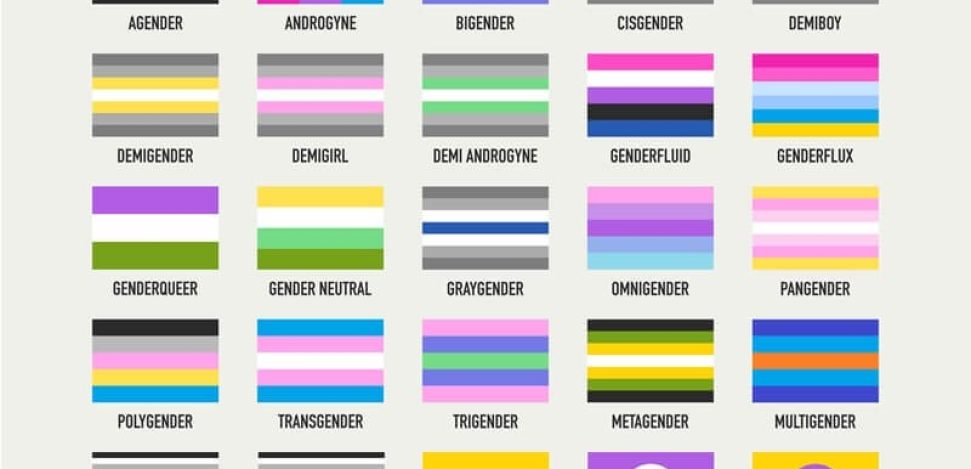Have you ever wondered what cisgender means? Many people haven’t even heard this term. However, in the midst of 2023 and with all the controversy surrounding sexual diversity, it’s worthwhile to be informed. After all, it’s one of the most crucial terms to make sense of gender orientation.
Currently, it’s essential to understand who we are and how we feel about ourselves. Hence, not only cissexuality has gained importance, but also transgender individuals have emerged to emphasize the relevance of our identity.
Cisgender, What Is It?
First and foremost, let’s discuss the meaning of cisgender, as it still remains somewhat unknown. It can be described as follows: a cisgender person is someone who embraces the gender assigned to them at birth. This is usually recognized through socialization, as others identify us with a specific gender when we are children.
Cisgender individuals are characterized by having no discomfort that leads them to want to change their gender. In some cases, cisgender and its meaning have been associated with a situation where gender aligns with biological sex.
However, the term cisgender has shifted more towards each person’s self-identity. It began to be mentioned in the 90s in academic journals of that time. It wasn’t until 2007 that it gained more prominence, thanks to mentions by transgender activist Julia Serano in her books.
GAY PRIDE PARADES: THE TOP 10 LGBT PARADES IN THE WORLD 🌍
Am I Cis sexual? Identifying Signs
Understanding that cis sexuality or cisgender refers to the alignment between gender identity and acceptance, the question arises, am I cis sexual? It can be a bit confusing. However, let’s mention some signs that may indicate you are part of the cisgender group:
You have identified with the gender assigned to you since birth, without wanting to cross that barrier.
You have no issues with being perceived in your social context with the gender you’ve had since birth.
You have no conflicts regarding your gender.
To know if you are cis-sexual, you should search for the answer within yourself. Ask yourself, do you feel content with who you are or what society thinks you are? Do you genuinely believe you should be recognized differently?
LGBT SHOWS ON NETFLIX YOU SHOULD WATCH!
Difference Between Cisgender and Transgender
The term opposite to cis sexuality is what is understood as transgender individuals—those who have chosen to transgress their gender, as they didn’t identify with it. Some differences between the two are as follows:
The prefix “cis” means “on this side” while the prefix “trans” means “on the other side of”.
Cisgender people identify with their gender. In contrast, transgender people prefer to identify with a gender different from the one instilled.
Transgender challenges the traditional gender classification to adopt the identity of the opposite gender.
Therefore, we can say that the difference between cisgender and transgender essentially lies in gender identity. This has little to do with sexual identity, which can define a person as heterosexual, homosexual, or bisexual, etc. It also doesn’t involve biological sex or the sexual characteristics that identify a person, such as being intersex.
WHAT DOES GENDERFLUID MEAN? DIFFERENCES WITH OTHER IDENTITIES
Cis sexuality: Challenges and Stereotypes
There are many details to highlight regarding the challenges of cis sexuality and cisgender individuals. This is especially due to the unfamiliarity with the word and the misconceptions it may carry:
One of the main challenges is to detach from heteronormativity. It is believed that every cisgender person is also heterosexual, which is not the case. A cisgender person can also have a preference for the same gender.
It is also important for cis sexuality to be understood in its difference from transgender. In this sense, transgender people can also identify as heterosexual or homosexual without affecting their gender identity.
Another challenge for cis sexuality is overcoming the relationship that has been created with biological sex. While there is a belief that gender is related to this, this is not the case. Many people genuinely believe that acceptance or dissatisfaction is directed towards biological sex and not gender.
The main stereotype of cis sexuality is that too much importance is given to the acceptance of biological sex. However, there are still other challenges to be overcome for this term to have proper use.
There is a growing community of people who want to bring awareness not only to cis sexuality but also to the relevance of gender identity. That’s why many celebrities have become activists for this cause.





 smokingpaper
smokingpaper




























